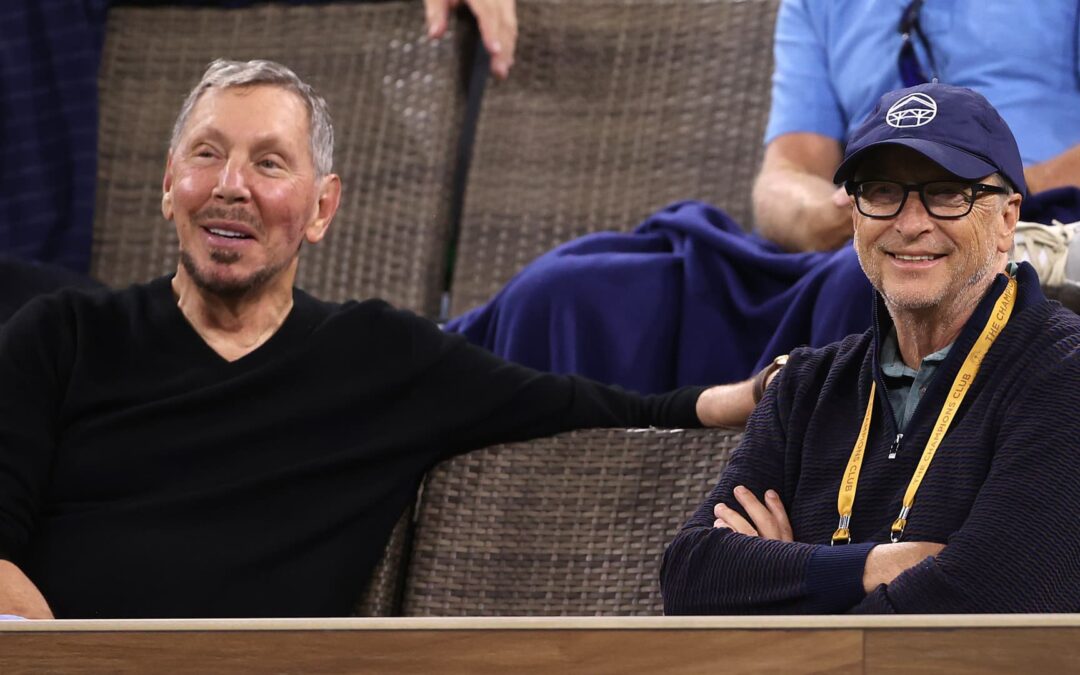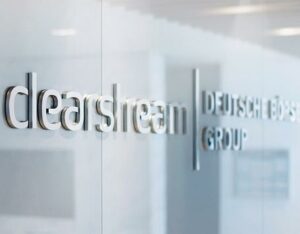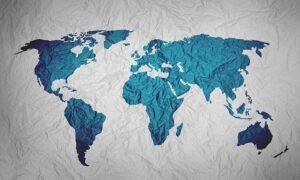Oracle Co-founder Larry Ellison, left, and Microsoft Co-founder Bill Gates watch a match between Gael Monfils of France and Alexander Zverev of Germany during the BNP Paribas Open in Indian Wells, Calif., on Oct. 13, 2021.
Sean M. Haffey | Getty Images
Larry Ellison, the co-founder, chairman and chief technology officer of Oracle, has been going up against Microsoft to in database software for more than 30 years. He has also had to deal with clients looking to connect their Oracle and Microsoft products. But until this week, he had never made the journey to Microsoft’s headquarters outside Seattle.
He was in town to appear alongside Microsoft CEO Satya Nadella to announce an expansion of the collaboration between the two companies. Oracle is placing its Exadata hardware, which contains servers for databases and storage, inside the data centers that Microsoft uses to run its Azure public-cloud service for hosting applications.
Organizations will be able to store data with Oracle’s database software by using Azure, rather than having to install Oracle hardware in their own data centers or use Oracle’s public cloud. Putting the Oracle equipment in Azure data centers means that applications will be able to quickly access data from the databases.
“It was lovely to come up here, said Ellison in a virtual presentation on the announcement, which he teased on Oracle’s earnings call with analysts on Monday. “It’s actually my first time in Redmond. It’s hard to believe. I waited till very late in my career to make this trip.”
Nadella conveyed the significance of Microsoft and Oracle working together by bringing up a memory from his early years, before he managed teams building Azure, the Bing search engine and Dynamics sales software. He joined Microsoft from Sun Microsystems in 1992, taking a position as a program manager in the Windows developer relations group.
“When I first came to Microsoft, the first week, they asked me to sort of get ISVs onto Windows NT at that time,” Nadella said. “I said, ‘There’s no way we can get ISVs onto Windows NT first without getting Oracle onto Windows NT.'”
Nadella said the new collaboration might help companies more quickly move their workloads from their existing data centers to the public cloud.
The two companies haven’t completely given up their rivalry, though. Oracle and Microsoft will still compete to sell cloud-based infrastructure, but Azure is larger and more mature, and Oracle wants to have customers keep using its products even as they adopt other clouds. And there’s nothing stopping longtime Oracle customers from considering Microsoft’s databases in Azure.
The tension between the two companies reached a high point in 2000, as Microsoft was in the middle of its hallmark antitrust case against the U.S. Justice Department. Oracle told media outlets that it had hired a detective firm that tried to buy trash from a Microsoft-backed trade group by offering money to janitors working at the group’s office in Washington.
Ellison co-founded Oracle in 1977 and is the world’s fifth richest person in the world, while Bill Gates, who co-founded Microsoft with Paul Allen in 1975, ranks fourth, according to Bloomberg. But Ellison controls 42% of Oracle’s outstanding shares, while Gates owns just over 1% of Microsoft stock, according to FactSet.
WATCH: Microsoft stands to profit a lot from the AI regulatory meeting, says Elevation Partners’ McNamee









